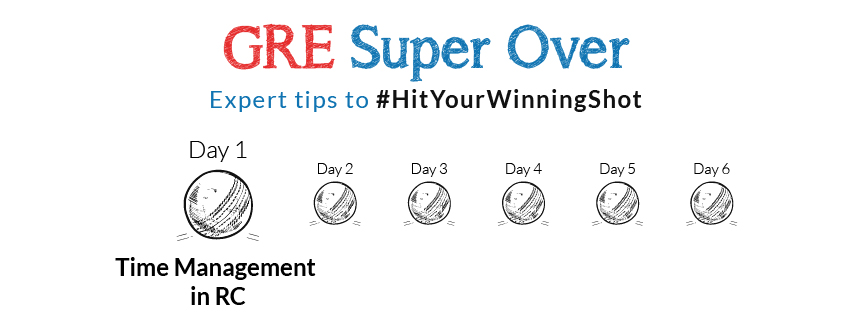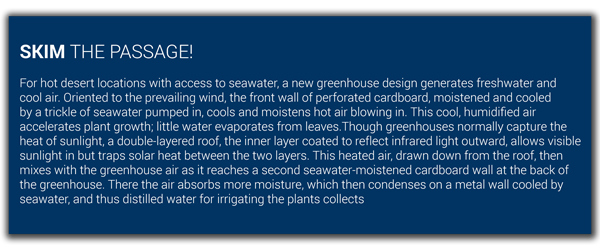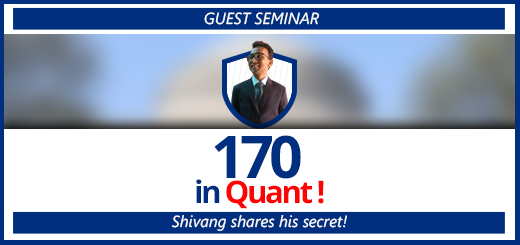GRE Super Over – Save Time in Reading Comprehension
Preparing for GRE? If the answer is yes, then you would probably nod your head in agreement when I state GRE Reading Comprehension is tough. The Verbal section opens the assault with a strong army of Reading Comprehension (RC) exercises leading the attack. RC can play mind games and can bring down even the strongest of competitors.
Lack of proper learning and practice in RC can spoil the time you need for the other sections and leave you hanging in terms of your target score.
Rakshit Rana was an engineering student who spent a major chunk of his time in engineering classes and labs. After a tiring day at college, he was relieved to get back home to take the nap he earned. His smile was quickly replaced by frustration when he realized his Verbal preparation was pending.
Being an engineering student, Rakshit was able to cope fairly well with the Quant section, but found it impossible to concentrate on the Verbal part.
He performed poorly in his practice tests and scored only 148 in Verbal and spent most of his time in the RC section.
To achieve his target score, Rakshit had to overcome his RC hurdles. His Verbal trainer chalked out a study plan, provided him with comprehensive materials, empowered him with various techniques, and enabled him solve a lot of Reading Comprehension questions.
With a 15-point score boost, he ended up scoring a whopping 163 in his Verbal and a total of 326!
Can some of the tips that helped Rakshit help you conquer GRE Verbal too?
Expert Tips That Helped Rakshit Conquer His Verbal Trouble
#1: Sail Stranger Tides
Reading on subjects related to your field of interest is good. But to get GRE-ready, you have to break out of your comfort zone, start experimenting, and step into unknown territories of literary interests.
This helps you to sharpen your reading skills and enables you to pick out the essentials from any given passage. This practice not only helps you in your Reading Comprehension, but also in your Analytical Writing Assessment.
#2: Calling the Keywords!
Speed reading, in this case, would mean grouping words and reading the passage very quickly without paying too much attention to “the”, “and”, etc. In short, you have to just grab the essentials of the entire piece of passage rather than beating around the bush.
During speed reading, care should be taken that you identify the important keywords and highlight them. This helps you save those precious seconds of time.
#3: Bust the Myth!
Some aspirants believe that reading the questions even before reading the passage helps. But sadly it does not. In fact, this has proven to make you take longer to finish the RC question, since you end up reading the passage each time in light of the question.
Read the passage first and arrive at a gist.
Read the questions carefully and then read the passage a bit more keenly the second time to find the relevant answers.
This also helps you to visually track your answer in the passage.
[EXPERT WEBINAR]: How to Crack Tough RC Passages?
Understand how to find the main idea of a passage, the purpose of a passage, as well as speed reading techniques in just 60 minutes – Register Now!
#4: Skim, Scan, & Solve
This is the ultimate speed reading technique that helps you solve RC passages well before the timer runs out.
SKIM: To quickly read the passage and grasp the underlying message, without stopping on words you are unfamiliar with (shorter phrases, bigger punch).
When should you use it?
- Reading the passage for the first time.
- To understand the key idea or objective of the passage.
- To recheck the information provided after you have answered it.
Having skimmed the above passage, you should have gathered an overall understanding of the passage including:
- The topic
- The main idea
- Rough idea of the purpose why the passage is written
- An idea of the flow of the passage (how the argument is built)
- A few key ideas of the passage and their approximate location in the passage
SCAN: Now proceed to the questions and then search the passage for specific details pertaining to the question asked. This is essentially what scanning is about.
When should you use it?
- Searching for a specific answer.
- Finding a specific numerical data in a given passage.
Example:
Read the following question and try to answer it by going back to the passage that you just finished skimming!
Q. It can be inferred that the process described in the passage makes use of which of the following?
A) The tendency of hot air to rise
B) The directional movement of wind
C) The temperature differential between the sea and the desert.
Answers: B and C
Now comes the final section…
SOLVE:
What are you waiting for? The clock is ticking!
Start answering all the questions.
#5: Jump the Jargon!
Jargon and technical terms, especially ones that pertain to science, economics, etc. are meant to just weigh you down. GRE does not evaluate your knowledge in any particular field. If you get stuck on terms that you are not aware of, remember that the information needed to answer the questions is always available in the passage itself. So get into the zen mode and forget all the distractions.
In the above passage, you can ignore the words that have been highlighted. Remember, RC tests language competency and does not judge your scientific capabilities.
So this how you hit the googly ball of GRE, which is Reading Comprehension, out of the stadium with your Switch hit!
[EXPERT WEBINAR]: How to Crack Tough RC Passages?
Understand how to find the main idea of a passage, the purpose of a passage, as well as speed reading techniques in just 60 minutes – Register Now!
















How can I practice these tips ?
I m too giving on 11th. i have complted 700 word by now. i m targetting 1000 words. u think they r enouf and i can score a 320+ ?
Should we ignore words like the, and etc. while skimming the RC? Which words should be ignored?
https://www.kaptest.com/gre/inside-the-test/gre-issue-essay
how good is this structure to follow to get a 4+ in AWA?